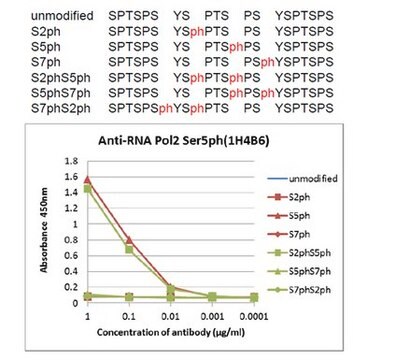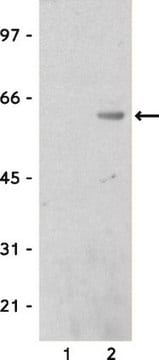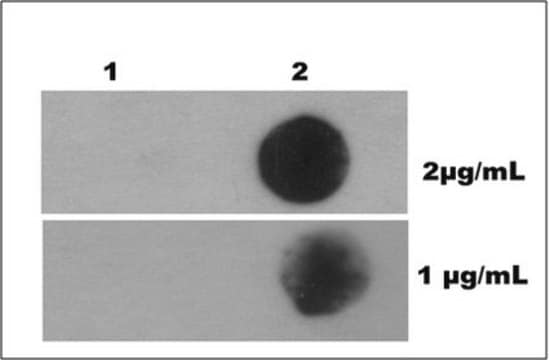OP133
Anti-IKKα Mouse mAb (14A231)
liquid, clone 14A231, Calbiochem®
About This Item
Recommended Products
biological source
mouse
Quality Level
antibody form
affinity isolated antibody
antibody product type
primary antibodies
clone
14A231, monoclonal
form
liquid
contains
≤0.1% sodium azide as preservative
species reactivity
monkey, human, mouse
manufacturer/tradename
Calbiochem®
storage condition
OK to freeze
avoid repeated freeze/thaw cycles
isotype
IgG1
shipped in
wet ice
storage temp.
−20°C
target post-translational modification
unmodified
Gene Information
human ... CHUK(1147)
General description
Immunogen
Application

Immunoblotting (1-2 g/ml, chemiluminescence)
Packaging
Warning
Physical form
Reconstitution
Analysis Note
Daudi cells
Other Notes
Didonato, J.A., et al. 1997 Nature388, 548.
Lee, F.S., et al. 1997 Cell88, 213.
Mercurio, F., et al. 1997 Science278, 860.
Regnier, C.H., et al. M. 1997 Cell90, 373.
Verma, I. and Stevenson, J.K. 1997 Proc. Nat. Acad. Sci. USA94, 11758.
Verma, I.M., et al. 1995 Genes. Dev.9, 2723.
Legal Information
Not finding the right product?
Try our Product Selector Tool.
Storage Class Code
12 - Non Combustible Liquids
WGK
nwg
Flash Point(F)
Not applicable
Flash Point(C)
Not applicable
Certificates of Analysis (COA)
Search for Certificates of Analysis (COA) by entering the products Lot/Batch Number. Lot and Batch Numbers can be found on a product’s label following the words ‘Lot’ or ‘Batch’.
Already Own This Product?
Find documentation for the products that you have recently purchased in the Document Library.
Our team of scientists has experience in all areas of research including Life Science, Material Science, Chemical Synthesis, Chromatography, Analytical and many others.
Contact Technical Service






